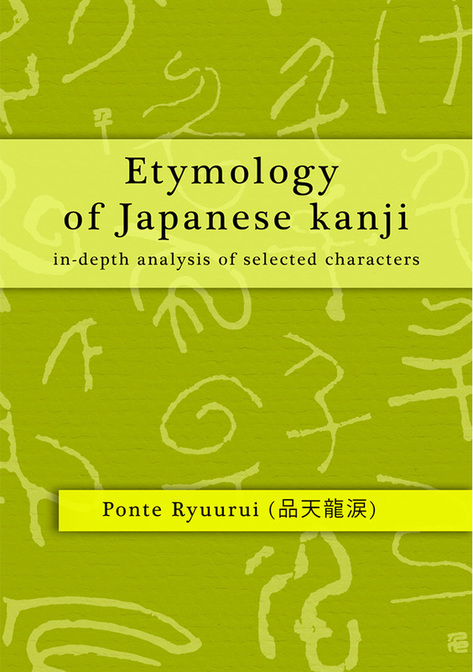 The main purpose of this book is not to teach Japanese kanji, but help you to understand and appreciate the vast complexity and philosophical and cultural depth of Chinese writing system. I talk in details about the etymology of 50 chosen characters, at a speed of one character per chapter. There are over 400 illustration inside the book, and all of them are not only actual historical characters taken from ink rubbings of outstanding Chinese and Japanese calligraphy masterpieces, ranging from 1600BCE to 19th century CE., but each of those illustrations has a detailed description regarding who wrote it and when, with other interesting historical facts or trivia, either about the classic or the author. The true value of this book is that the key contents are based purely on Japanese or Chinese literature, and not translations into other languages. I bring you knowledge that is hidden behind the language barrier for most of the Western world. One of my main sources for this book were publications by one of the greatest modern scholars of the etymology of Chinese writing, Shirakawa Shizuka (白川静, 1910 - 2006), who sadly passed away in 2006. His books are hugely valued not only in Japan but also in China and Taiwan. Since his publications are quite encyclopedic, and are based on numerous abbreviations and connotations, even native speakers whose field is Japanese or Chinese language, find those books difficult to read. I invested a great amount of time and effort, and backed it up with my years of experience in the field of Chinese and Japanese calligraphy, to explore a lot of side topics and intriguing fact on the subject of origins of kanji, and included them in my book. Etymology of Japanese kanji - in-depth analysis of selected characters is a book aimed at anyone who is interested in Chinese or Japanese language, or history of ancient China and Japan, or any enthusiasts who appreciate the culture and philosophy or the Far East. The title of this book was the most difficult thing to decide on, since it is impossible to talk about Japanese kanji without discussing Chinese characters, which in some cases are the same thing, and in others are different. I decided on Japanese kanji in the title, mainly because I live in Japan and this is also where I study calligraphy. If you have any questions regarding the book, feel free to send them directly to me or leave a comment below. |
Categories
All
AuthorPonte Ryuurui (品天龍涙) Archives
August 2020
|

 RSS Feed
RSS Feed
